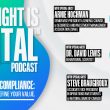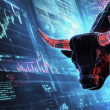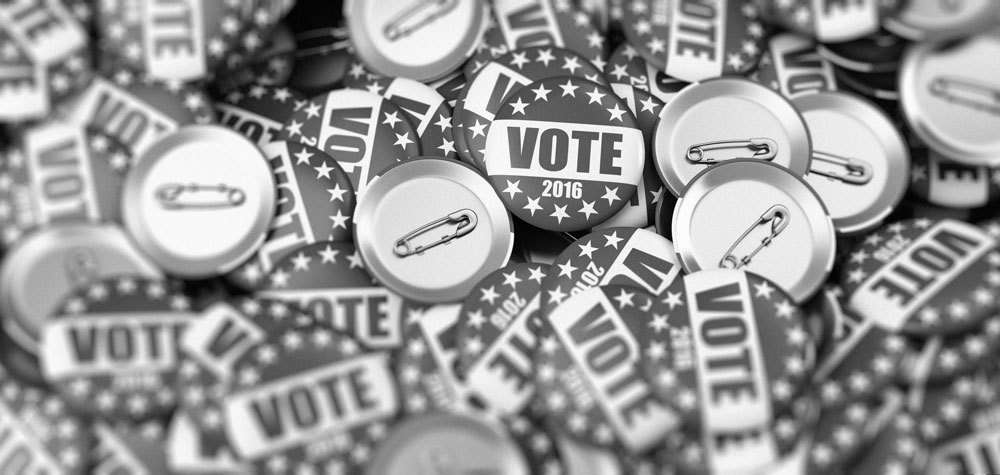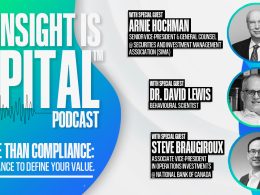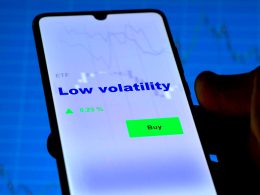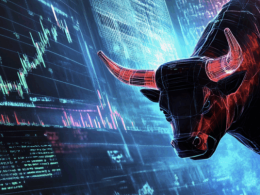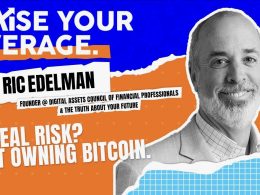by Kara Lilly, Investment Strategist, Mawer Investment Management
Heading into the U.S. election, investors can help put the odds in their favour by knowing what they don’t know.
When I was a young girl, my grandmother gave me some advice: always be brave enough to face uncomfortable truths.
Now, my grandmother is a strong Scottish woman, the kind for whom few words are necessary and emotional empathy consists of pouring you a cup of tea. While she’s occasionally given me advice over the years, more often she has communicated her expectations through quiet example. Nothing fazes her. She faces reality, no matter how hard, and just “gets on with it.”
This advice comes to mind as we watch the final leg of the U.S. election unfold. Unsurprisingly, our team has faced numerous questions concerning the election’s potential consequences to investors. What will happen to stock markets if Trump gets elected? How will a Clinton presidency impact the USD? How will my portfolio be impacted?
These questions are understandable; the attempt to predict future events alleviates our anxiety around uncertainty by giving us the illusion of control. So when investors are faced with complex macroeconomic events—like the U.S. election—many resort to making predictions and positioning their portfolios for their expected outcomes. The uncomfortable truth here is that with most macro events, investors often do not have an edge.
In investing, it is not enough to believe that you are “right” about something, you also want an edge. An edge occurs when you have an insight that is different from the collective view of the market. It occurs when you have information that gives you confidence that the odds displayed in the market are wrong. In other words, you believe your view of the odds to be more accurate.
The importance of this concept cannot be overstated. Investors frequently exhaust a great deal of energy on subject matters in which they have limited advantages and subsequently take strong investment positions in situations where it makes no sense to do so. This behaviour is unlikely to put the odds of investment success in their favour over time.
In our experience, it is critical to begin by asking if we have the information necessary to take action in the first place. It is essential to understand when it is appropriate to take a position and when a diversified approach is warranted. This comes down to knowing if you could have an “edge.” For example, before asking, “Who will win the presidential election?” an investor should ask, “Is it reasonable to think that I could have an edge in this situation?”
Knowing when to act and when to just stay diversified is critical to building investment resilience. When we talk about putting the odds of success in our clients’ favour over time, this is the intellectual starting point. It’s important to remember this point as we head towards November 8th.
When to act
When it comes to knowing when to act, we believe that there are three core principles for investors to understand:
- “Bet” only when you have an edge.
- Diversify otherwise.
- Realize that most of the time you won’t have an edge.
Let’s say you are looking for companies to invest in India when you stumble across Hindustan Unilever. Hindustan Unilever sells Lipton, one of the most popular tea brands in India, along with other mainstream consumer products. The company has grown its cash flows at a staggering pace. Having read through the annual report, you become very excited at the company’s growth prospects and want to invest! Unfortunately, so does everyone else. The company’s stock price already seems to reflect the growth you’re expecting. In this case, it wouldn’t make sense to invest because you probably wouldn’t have an edge.
Compare this to an Irish flavour manufacturing business you find the same day. This business manufactures the flavours that go into products like the ones Hindustan Unilever sells. They are the reason why Cheetos taste like Cheetos and Doritos taste like Doritos. And, like Hindustan Unilever, they also appear to be compounding wealth at an attractive rate. The difference is that investors seem to be underestimating this business’ long-term growth opportunities because they don’t fully understand its business model. In your opinion this has made the stock undervalued in the market. In this case, it could make sense to invest because you may have an edge.
Charlie Munger has talked about this idea in terms of horse racing. Imagine a sunny day at the horse track. You notice that Blue Steel, beloved former champion, has fallen out of favour. You notice that they have given him 3:1 odds. However, your analysis reveals information that makes you think the true odds are 2:1. In this case it’s rational to bet because you believe you have an edge.
It’s important to note that your objective is NOT to pick only horses that win; it’s to know the odds better than the other players and to make a lot of bets so that your cumulative result is positive. If you do this and you produce returns that outweigh the (usually atrocious) fees from the track, then you may come out on top in an environment in which people usually lose. Investing is similar. It is not enough to simply be “right” about how the world unfolds. To consistently generate returns that exceed market returns, your view of the odds must be consistently more accurate than those of the market.
So how do you know if you have an edge? The simple answer is you can never know for sure, but you can track your decisions over time to test the accuracy of your hypotheses. This calibration is critical because it is very easy and incredibly common for investors to delude themselves into thinking that they have an edge when there is no supporting evidence.
Think micro, not macro
At Mawer, we find that it is easier to find an edge performing bottom-up rather than top-down analysis. In other words, it is often easier to find an edge at the individual company level (micro) than something as complex as the global economy (macro). Macro events tend to be much more complex and adaptive, such that it can be difficult to have a real advantage. And even when you are quite certain how an event will unfold, it doesn’t mean you know how markets will react.
As an example, consider what recently happened in New Zealand. In August, the central bank of New Zealand cut interest rates. Typically, when interest rates are cut, foreign investors view the environment as incrementally less attractive, capital leaves the country, and the country’s currency falls. This is the theoretical relationship that exists between interest rates and currency—it is the way that the system should work. But the New Zealand dollar didn’t fall in August. It strengthened.
Turning back to the U.S. election, current polls suggest that Clinton is leading Trump. But that doesn’t mean we know what will happen between now and Election Day. Even if we knew who would win, that doesn’t mean that we know how markets will react. For example, let’s imagine a hypothetical scenario in which Hillary Clinton wins as predicted. As expected, markets react positively… but then China announces they are having a major banking crisis and are selling all of their U.S. treasury holdings. The S&P 500 Index consequently tanks. Even if you had known she was going to win, it doesn’t mean you would have been able to predict how the stock market would perform that day.
This isn’t to say that it is impossible to find an edge in the macro world. It is simply rare. When it comes to most macro events, the prudent thing to do is usually to diversify.
Diversify
The idea behind diversification is to hold assets that should perform differently under different scenarios. In an event like Brexit, you might own some companies that would do well if Britain stayed and some companies that would do well if Britain left. Essentially, a diversified strategy means that you have never positioned yourself for just one outcome. This means that you are always giving up some upside in order to protect against most (but not all) of the downside.
An important point here is that diversification is appropriate when you expect to go through many uncertain events. When you go through multiple events, you may experience occasional negative outcomes, but you also have the chance to overcome them. If the odds are in your favour overall and you go through enough rounds, your outcome should be positive. Without diversification, a single negative event can ruin your entire portfolio.
Brexit
Clients curious about our approach to the U.S. election may be interested in how we dealt with Brexit. The approach in both cases is consistent.
Like most market participants, we knew the UK referendum was coming a long time in advance. We had plenty of time to consider the potential impacts and make necessary adjustments to portfolios. In each portfolio we considered every holding and whether the investment case remained attractive given the additional risk. Furthermore, we looked at our aggregate exposures to the UK economy and the British pound. This activity resulted in a few adjustments in places where we felt the risks to the downside were bigger than the benefits to the upside and vice versa.
But we did not make massive changes and this is a key point. Before Brexit even became a term, our holdings were diversified on a global basis. Moreover, the businesses we owned (and continue to own) had strong competitive positions and the ability to handle inclement economic and political weather. We were already in a ready position when Brexit surfaced. There is no reason this will not be the case come November 8th.
Of course, there are some differences between Brexit and the U.S. election. One of the main differences is that Brexit could have been destabilizing to the financial system, while this type of impact is less likely with the U.S. election. Another difference is that the consequences resulting from Brexit were more easily understood; with this election, they are more unclear. For example, we knew that IF the Brexit result was to leave the EU, trade agreements would have to be renegotiated, and therefore there would be considerable uncertainty for some UK businesses. Contrast this with the U.S. election where the actions the successful candidate will take around the budget, trade and foreign policy are relatively unknown.
One important admission: we did not know that the UK would leave the EU. The polls were very close up to the referendum and we did not know which way it would go. If anything, we leaned slightly towards a “stay” result. Clearly, we were wrong.
The Bounds of Knowledge
The U.S. election has featured prominently in public discourse. Dinner parties have become soapboxes upon which people have pronounced their views and convictions. People you thought you like have become intolerable. This is the joy of the democratic process and the exchange of ideas—and it’s a good thing. It is a privilege to live in a world in which this is possible.
There may be temptation in this environment to try to act as though we have more knowledge than we do. This is something investors should guard against; especially when it comes to predicting the election’s consequences on markets. The guy that insists the USD must plummet if Trump is elected isn’t standing on firm ground. You may be interested in his logic, but his claims should be treated with suspicion.
Finding an edge in macro events is not impossible. But it is rare. The U.S. election is one of those events. If investors can’t find an edge, they shouldn’t feel as though they are failing. In these circumstances, diversification is the prudent strategy.
Copyright © Mawer Investment Management

